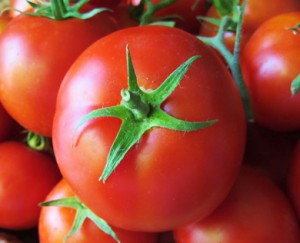Over 6,000 tomatoe farmers affected by Tono, Vea Irrigation dams shut-down
 Over 6,000 farmers in the Upper East Region will not be able to undertake dry season farming using the Tono and Vea irrigation dams this season.
Over 6,000 farmers in the Upper East Region will not be able to undertake dry season farming using the Tono and Vea irrigation dams this season.
This is because the two dam have been shut down due to the water reaching their dead storage levels.
The shutdown is likely to affect the supply of tomatoes early next year, since majority of the production of tomatoes and other vegetable is done around the dams.
The impact of the closure would directly affect 18 communities in the Kassena Nankana and Bolgatanga Municipals and other farmers who usually move to the irrigation areas during the dry season to farm. They would lose revenue because they cannot carry out any dry season farming.
Mr Issah Bukari, Director of Irrigation Company of Upper Region (ICOUR) who made the revelation in an interview at Tono said the shutdown which occurred on November 21st was necessary because both irrigation projects were in their dead storage levels and threat to fishes in the dams and therefore “necessary before the dams got to their dead bottom,” he added.
He said the level of water in the Tono dam leading to the shutdown stood at 173.6metres as against the maximum operating level of 179.2 meters above sea level and explained that “when the water is at this level, water cannot flow out through the valves through which water is pumped for farmers…”
Mr Bukari who gave the background of Vea and Tono dams, stated that both dams were established in 1965 and 1979 respectively with the objective to improve food production, household incomes and food security and standard of living in the communities.
However, even though for over 30 years both dams had made gains, there were challenges that included the deterioration of the facilities especially the canal systems and drains.
He said the canals that were lined with concrete slabs at the onset of the projects were worn out and currently exposed through wear and tear.
Plastics have also choked the valves of the drains in addition to being silted with sand, he said.
Mr Bukari blamed the challenges also on low rainfall, high evaporation and large quantity of sand in the dams that made them to fill up with the least amount of rain.
Regarding how farmers were prepared to cope with the change, he said sensitization of communities were ongoing to enable them to adjust to the situation whilst consultation was going on for the rehabilitation of the dams.
However the director said in order not to allow farming work to totally come to end, efforts would be made to pass some water in bits in some zones depending on the situation whilst others would completely remain shut down.
.
Mr Sebastian Bagiba, Deputy Manager of ICOUR, advised the farmers to prudently manage the produce they harvested from the rain fed cropping this year.
He particularly urged farmers who depended on straw harvested around the irrigation sites for the grazing of animals to prepare well during the period since straw would not be available.
“Farmers should plan for their animals, normally they come to the project to pick rice straw, for the animals so they should prepare very well,” Mr Bagiba stressed.
Source: GNA
